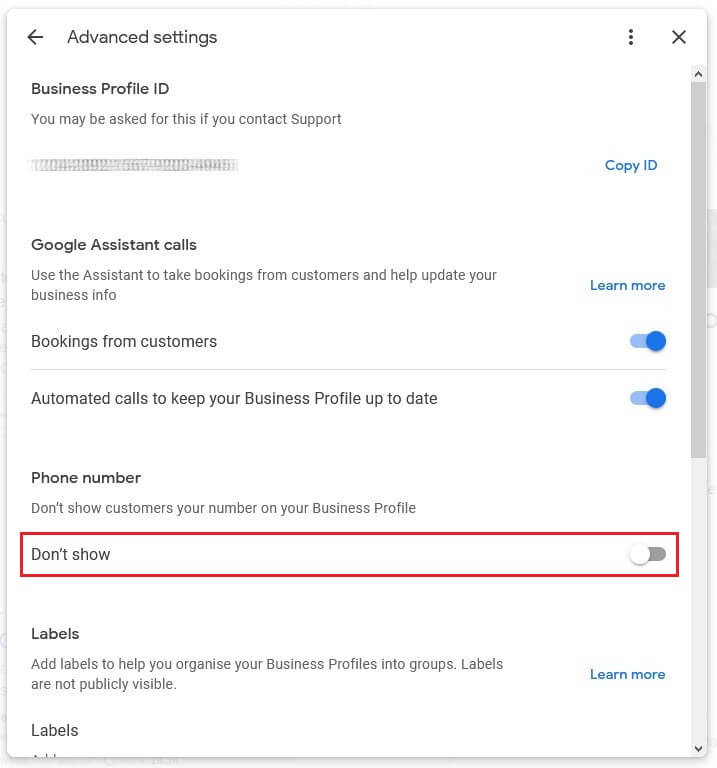Search Engine Land’s daily brief features daily insights, news, tips, and essential bits of wisdom for today’s search marketer. If you would like to read this before the rest of the internet does, sign up here to get it delivered to your inbox daily.
Good morning, Marketers, is transparency always a good thing—I mean, from Google Search?
I’ve been covering Google Search and SEO for a long time, literally almost half of my lifetime. Sometimes I wonder if it makes sense for Google to be more or less transparent. Would it benefit Google more to be more transparent or would it benefit Google more to be less transparent?
In the early 2000s, Google was very secretive about how anything worked organically in Google Search. We had GoogleGuy who was Matt Cutts, but no one really knew who GoogleGuy was. He spent his 20% time helping SEOs understand Google Search, while also keeping tabs on SEO spammers. Then, over the years, Matt Cutts helped form teams devoted to working with SEOs, webmasters, site owners, publishers and creators.
I’d say today Google is at an all time high for transparency on how Google Search works. But it might not be a good thing. The more Google tells us, the more questions we have, the more doubts we have in our own theories. The more Google communicates, the more we twist those words to benefit our own agenda. And of course, Google has to be careful about how much it says because there are spammers looking to game the system.
For one thing, I think transparency from a Google point of view is a lose-lose situation. The more they share the more we want them to share, the more questions we have, the more we call them liars and the more we don’t believe them. Does the transparency help us, publishers, site owners, developers, etc? Sure, but at what cost? What do you think? Let me know on Twitter @rustybrick.
Barry Schwartz,
Chief Transparency Officer
Google News transparency policy for publishers
Google published a list of transparency-related policies for publishers in Google News. The company determines what constitutes meaningful transparency from news sources by what types of information an ordinary person might find helpful, the company said.
These policies include a list of items and factors that are looked at on the site level and article level. Site-level items include mission statement, editorial policies, staff information, contact information and owners and funding sources. Article-level items include article bylines, publish date, article labels for type of article and so on.
Why we care. If you are a publisher and produce news content that you want to perform well in Google News, you should read the details above and make sure your site hits the mark on both the site-level and article-level criteria.
Similar Audiences and Google Merchant Center store importing are coming to Microsoft Advertising
Yesterday, Microsoft Advertising announced its key product updates for June. Similar Audiences is likely to be the most impactful among them: the feature helps you scale campaigns by looking for users similar to the ones on your remarketing lists. Similar Audiences is rolling out to advertisers in the U.S. this month.
The platform also announced the ability to import a Google Merchant Center store when advertisers import their Shopping campaigns; this feature is currently in closed beta but you can get in touch with Microsoft Advertising if you want to participate. And, the Microsoft Audience Network is now available in two additional territories, France and Germany, bringing the number of available markets to seven (the U.S., Canada, UK, Australia, New Zealand and the aforementioned France and Germany).
Is Google sending us a warning about UGC spam?
The other day, Google wrote what seemed to be a routine and straightforward blog post on ways to prevent your site from being abused by spam. It was basically about content moderation and basic security to find or prevent user generated content spam, including:
- Blocking automated user account creation.
- Enabling moderation features for your forum, blog comments and so on.
- Finding spammy content on your site due to hacking issues.
- Locating and terminating spam accounts.
- Preventing Google from following untrusted content or links on your site.
- Securing your server and platform from spammers.
- Keeping your CMS and software up to date.
I asked Google if this was some sort of warning post, that maybe Google might be increasing its enforcement of UGC related manual actions or not. Google didn’t really get back to me, which makes me wonder if something is up. So while Google did post something similar back in 2017 on their blog, this new blog post may be just a “how-to” style post from Google or a warning of what is to come. Either way, keeping your site spam-free and clean of poor user generated content is just smart webmastering.
Hide phone numbers in your Google business profile

Google has quietly added a feature for businesses who do not want people to contact them to hide their phone number from displaying in their Google business profile in Google Maps and Google Search.
The “change appears in support documentation that provides instructions specific to the New Merchant Experience. (i.e. direct edit). It does not appear to be available within the GMB dashboard,” Stefan Somborac, a local SEO, who spotted this and posted about this on Twitter, said.
Hiding your phone number might lead to less phone calls but that might also lead to less business. But that is for you, the business owner, to decide if you want fewer phone calls. You can find more details on how to do this in the Google help document.
Google announced a new Google Shopping and Google Merchant Center policy update where sites that do not meet certain professional and editorial standards would have their accounts suspended. They will be notified with a “Website needs improvement” policy status in their Merchant Center accounts.
Google “requires that all merchants meet certain professional and editorial standards on their websites,” the company said, “As such, Merchants with websites that do not meet basic requirements will see a ‘Website needs improvement’ policy status and have their accounts suspended until requirements are met. This policy is intended to protect users from poor shopping experiences, such as incomplete websites, confusing or inaccurate product information, broken links on the website, etc.”
If you get the website needs improvement notice, Google said you can first “make sure that your website is fully-functional, has content specific to your business, and the information available is easy to understand and complete.” “Your website shouldn’t have broken links, templated content, or placeholders of text or images,” the company added.
Not found, organic traffic drops and AJAX crawling
404 vs 410 reporting. John Mueller of Google said Google may one day provide more detailed reporting on 404 pages vs 410 pages in Google Search Console. John Mueller said “you’re not the first one to ask for more detailed 404/410 information, so I wouldn’t count it out forever.”
Google organic traffic drops. “I would not assume traffic changes are indicative of technical issues – it’s easy to spend a lot of time “fixing” technical things when the problem is elsewhere,” John Mueller of Google said. So make sure to check to see if your quality is up to snuff as well.
AJAX crawling. Google killed off support for the AJAX crawling scheme years and years ago. But Google continued to crawl it and still seems to. But Google’s John Mueller said “we dropped support for AJAX crawling a while ago, and now just index / render #! URLs directly. Redirecting & canonical are good practices to clean that up, but it can be good to dig up links going there too (sometimes they’re internal & can easily be fixed).” So you may still see some Google activity on your hashbang URLs.
We’ve curated our picks from across the web so you can retire your feed reader.
http://feeds.searchengineland.com/~r/searchengineland/~3/lBewmoaXAMc/is-more-transparency-from-google-a-good-thing-wednesdays-daily-brief-349115


